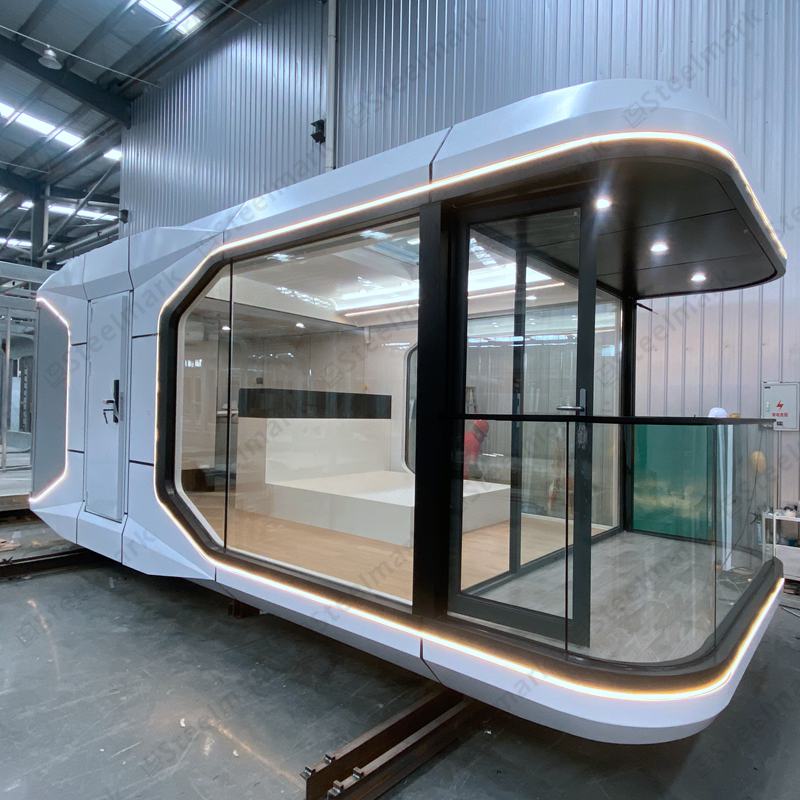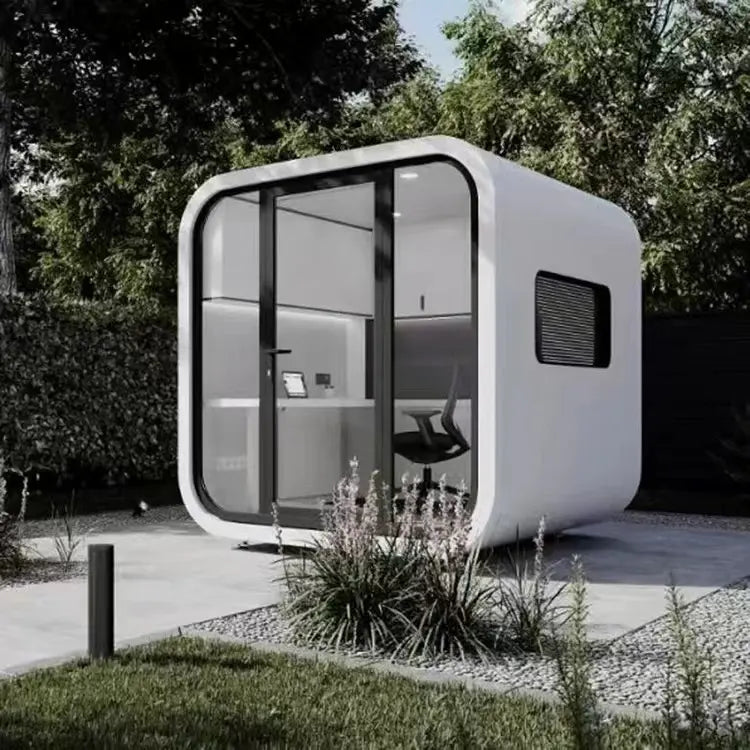How Capsule Houses Offer an Affordable and Efficient Housing Solution
How Capsule Houses Offer an Affordable and Efficient Housing Solution
Blog Article
Why Modular Residences Are the Future of Sustainable Living
Modular homes are increasingly identified as a crucial option for sustainable living, using a mix of performance, cost-effectiveness, and environmental advantages. The flexibility of modular designs allows for the combination of sustainable technologies and products customized to specific demands.
Ecological Advantages of Modular Homes
The ecological benefits of modular homes represent a substantial step towards sustainable living. These homes are constructed in regulated manufacturing facility setups, which substantially decreases waste produced during the structure process. By enhancing products and reducing excess, modular construction adds to a much more effective use of resources contrasted to conventional structure approaches.
In addition, modular homes are frequently created with power efficiency in mind. Several integrate advanced insulation strategies, energy-efficient windows, and lasting products, contributing to reduced energy intake. This can result in lowered greenhouse gas emissions over the life-span of the home, enhancing its total ecological profile.
The capacity to transportation and assemble modular parts on-site additionally decreases the carbon footprint related to building and construction logistics. Additionally, lots of modular homes are constructed to be adaptable and quickly upgradeable, enabling property owners to implement lasting technologies, such as photovoltaic panels and energy-efficient heating systems, in time.
Inevitably, the ecological advantages of modular homes not only advertise lasting living but likewise encourage an even more liable method to real estate advancement, aligning with international efforts to battle environment change and preserve natural deposits for future generations.
Cost-Effectiveness and Affordability
Structure a home commonly represents one of the biggest financial investments individuals make in their lifetime, and modular homes use an engaging option for those seeking cost-effectiveness and affordability. Among the primary advantages of modular homes is their lower construction expenses contrasted to standard site-built homes. The structured production process enables for significant savings on labor and products, which equates to reduce rates for customers.
Additionally, modular homes usually have shorter construction timelines. This not just minimizes expenses associated to financing and insurance coverage however likewise alleviates the dangers associated with inflation and rising and fall market problems. Several customers discover that modular homes can be personalized to fit their budgets without sacrificing quality or layout.
Furthermore, power effectiveness is commonly developed into the layout of modular homes, leading to minimized utility bills over time. Lots of suppliers focus on lasting materials and methods, better enhancing the long-term monetary stability of these homes. Overall, the mix of preliminary cost financial savings, rapid building and construction, and ongoing energy effectiveness makes modular homes an eye-catching option for those wanting to purchase sustainable living without breaking the financial institution.
Efficiency in Construction
Modular homes not just provide economic benefits yet also stand out in building efficiency. The modular building process includes the synchronised building of components in a manufacturing facility setting while site prep work happens simultaneously. This parallel technique substantially minimizes the total timeline from fertilization pop over here to conclusion, typically cutting building time by up to half compared to conventional approaches.
Moreover, factory-controlled settings enhance quality control. By using precision manufacturing techniques, modular homes are constructed to exact requirements, reducing waste and errors. This consistency not just results in a better product yet also contributes to sustainable techniques by decreasing material waste during building and construction.
Additionally, the usage of contemporary innovation and automation in the manufacturing procedure allows for quicker assembly and lowered labor expenses. As soon as the modules are carried to the website, they can be efficiently set up, further quickening the timeline. This streamlined process is not just advantageous for builders but additionally reduces disruptions to the surrounding setting throughout building and construction.
Modification and Design Versatility
An outstanding selection of modification options differentiates modular homes, enabling property owners to tailor their space to meet particular needs and choices. This layout adaptability is a trademark of modular building and construction, enabling clients to pick whatever from layout and room formats to fixtures and finishes. Unlike traditional homes, modular designs help with a joint strategy where contractors and engineers work closely with property owners, ensuring that each element aligns with aesthetic wishes and specific way of lives.
In addition, modular homes can be conveniently reconfigured or increased, accommodating transforming family dynamics or progressing personal tastes. This flexibility not only boosts the home's capability but additionally adds to lasting sustainability, as home owners can modify their areas instead of seek new real estate options.

Future Fads in Sustainable Real Estate
Arising fads in sustainable housing are improving the landscape of domestic building and construction, stressing green practices and cutting-edge technologies. One significant trend is the assimilation of clever home modern technology, which improves power performance through automated systems that monitor and maximize energy consumption. This not just decreases energy costs but also adds official statement to a lower carbon footprint.
In addition, using sustainable materials is ending up being increasingly common. Home builders are going with recycled, in your area sourced, or site web quickly sustainable materials, which lessen environmental effect and support neighborhood economic situations. Additionally, modular homes are obtaining popularity for their minimized waste throughout building and their flexibility to numerous terrains and environments.
One more fad is the incorporation of green roofing systems and living walls, which enhance air high quality and provide all-natural insulation. These functions additionally promote biodiversity in urban areas.
Verdict
In verdict, modular homes emerge as a pivotal service for sustainable living, offering substantial ecological benefits with lowered waste and power effectiveness. As patterns in lasting real estate advance, modular homes are poised to play a crucial duty in advertising environmentally friendly living techniques for future generations.
Structure a home often represents one of the biggest financial investments individuals make in their life time, and modular homes use an engaging option for those looking for cost-effectiveness and price. One of the primary benefits of modular homes is their lower building costs contrasted to typical site-built homes. Generally, the combination of first cost financial savings, rapid building, and ongoing power efficiency makes modular homes an eye-catching choice for those looking to spend in lasting living without damaging the bank.
Eventually, the customization and style flexibility used by modular homes ensure that they are not just frameworks, but personalized shelters that mirror the unique identities of their owners while advertising lasting living techniques.

Report this page